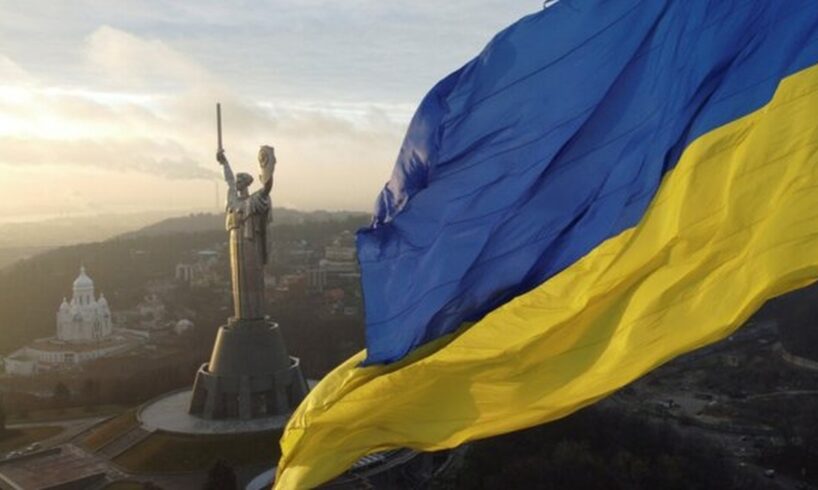
The majority of Ukrainians maintain their position against territorial concessions to end the war with Russia. This is evidenced by the results of a survey conducted by the Kyiv International Institute of Sociology.
According to the results of the survey, as of autumn 2025, the situation has hardly changed compared to May-early June.
“Yes, 54% of Ukrainians are categorically against any territorial concessions (in early summer 2025 – 52%). Ready to accept certain territorial losses – 38% (the same as previously),” the survey report states.
As specified by KIIS, surveys on the population’s readiness for territorial concessions to achieve peace as soon as possible and preserve independence have been conducted since May 2022. The original wording (which we prepared in May 2022) reads as follows: “With which of these statements regarding possible compromises to achieve peace with Russia do you agree to a greater extent?”, and the respondent was asked to choose one of the following two statements: “In order to achieve peace as soon as possible and preserve independence, Ukraine may give up some of its territories” and “Under no circumstances should Ukraine give up any of its territories, even if this causes the war to last longer and there will be threats to the preservation of independence.”
The analysts also clarified that the wording of the question uses “the war is ending” and “Ukraine preserves independence,” since the experiment in February 2025 showed that Ukrainians strongly react to “preserving sovereignty” and consider it one of the fundamental points for any peace agreement. In particular, some respondents could, for example, understand “preserving independence” as receiving security guarantees. That is, their interpretation may be broader than the question directly implies.
After clarifying the concept of “territorial losses,” the majority of Ukrainians (67%) stated that if it comes to the official recognition of certain territories as part of Russia, they will be against it. Ready to accept – 24%. Compared to May-June, the situation has practically not changed.
Also, the vast majority – 71% – reject the transfer of territories controlled by Ukraine to Russia. Ready to accept – only 19%. In May-June, 78% categorically rejected, and 15% were ready for such an option.
In the case of the option of freezing the front line without officially recognizing any occupied territories as part of Russia, 56% categorically reject such an option, and 35% are ready for it. At the same time, the willingness to accept such an option has decreased since May-June – yes, the share of those who can agree has decreased from 43% to 35%. The share of those who are categorically against has increased from 48% to 56%.
In all regions, the option with the official recognition of individual territories as part of Russia or even the transfer of territories that Ukraine currently controls under Russian control is not supported. That is, these demands are unacceptable to Ukrainians both in general and in all regions.
At the same time, support for the option with the de facto recognition of Russian control over individual territories is growing from 26% in the West to 46% in the East.
“Although even in the East, opinions are divided almost equally on this issue, which means that there is no region where this option would enjoy overwhelming support. However, again, according to the results of our survey conducted in early September (which we mentioned above), if the freeze is supplemented by reliable security guarantees and a European perspective, then the majority of Ukrainians in all regions are ready to approve this option (albeit without enthusiasm),” KIIS said.
Executive Director of KIIS Anton Hrushetsky, commenting on the survey results, emphasized that the current results actually repeat the trends that have been consistently observed in various surveys with different wording of questions on war and peace and, in particular, possible territorial losses.
“Yes, despite all the difficulties, Ukrainians are determined to continue their resistance and reject unacceptable demands for territories. Especially if they try to impose territorial losses on Ukraine without any compensation in the form of reliable security guarantees and a European perspective. In any case, we see that the option with the official recognition of certain territories as part of Russia or the option with the transfer of territories currently controlled by Ukraine under Russian control are “unviable” from the point of view of Ukrainian public opinion and are doomed to categorical rejection. The only option – and only within a more comprehensive package – that has the potential for discussion is the freezing of the current front line without any legal recognition,” he emphasized.
The survey was conducted from September 19 to October 5. 2,015 respondents were interviewed using the computer-assisted telephone interviews (CATI) method based on a random sample of mobile phone numbers (with random generation of phone numbers and subsequent statistical weighting) in all regions of Ukraine (territory controlled by the Government of Ukraine) (about 500 randomly selected respondents answered each of the four options for questions about territorial concessions). The survey was conducted with adult (aged 18 and older) citizens of Ukraine who, at the time of the survey, lived in the territory of Ukraine controlled by the Government of Ukraine. The sample did not include residents of territories temporarily not controlled by the Ukrainian authorities (at the same time, some of the respondents are IDPs who moved from occupied territories), and the survey was not conducted with citizens who left abroad after February 24, 2022.
Formally, under normal circumstances, the statistical error of a sample of 2015 respondents (with a probability of 0.95 and taking into account the design effect of 1.3) does not exceed 2.9%. The error for a sample of about 500 respondents does not exceed 5.8%.
In war conditions, in addition to the specified formal error, a certain systematic deviation is added.





